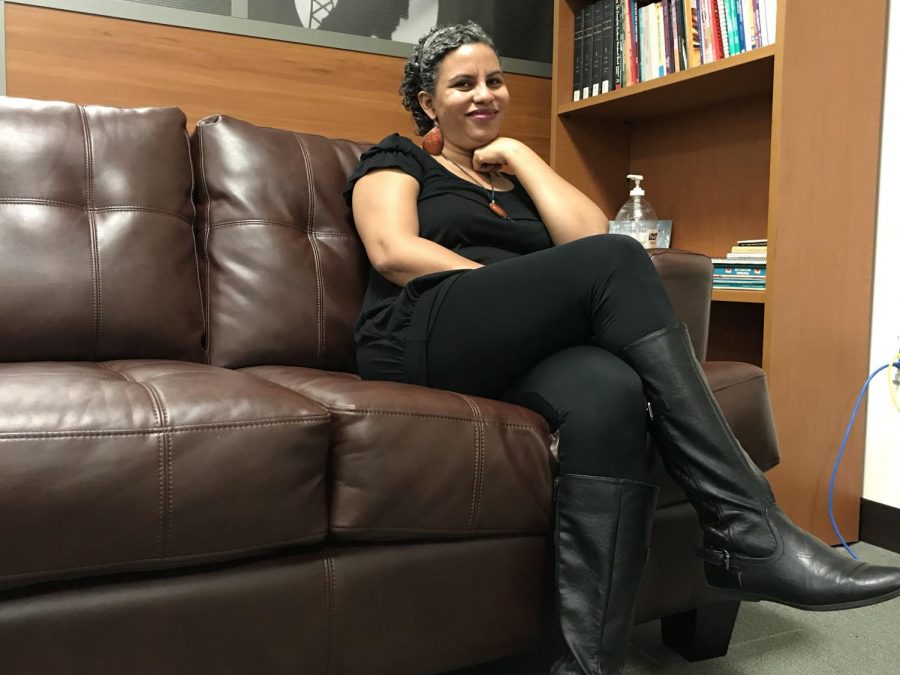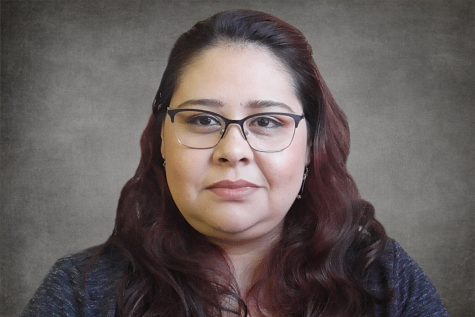Leadership void leaves student-veterans searching for answers
Vets outraged, coordinator fired
TeJae Dunnivant is the college’s new veterans’ coordinator this semester after the position remained vacant for nearly a year.
Feb 19, 2020
Veterans at Contra Costa College again have to experience the hardships of instability after their coordinator was fired two days prior to the beginning of the spring semester.
TeJae Dunnivant served as veteran’s coordinator for almost a year and Jan. 14, she received a termination letter without any explanation for the decision.
Before Dunnivant’s hiring in the spring of 2019, the position was open for nearly a year. The position was left vacant after Dedan Kimathi Ji Jaga resigned as the coordinator in the spring of 2018.
Dean of Students Dennis Franco said he could not discuss the reasons why Dunnivant was terminated.
“Unfortunately, I can’t really get into details about this case. As a manager, I’m prohibited from discussing personnel matters,” Franco said.
Dunnivant, who is of African American descent, was terminated during a time when the African American Staff Association (AASA) voiced its belief that the Contra Costa Community Colleges District (4CD) excludes people from African descent from higher administrative positions.
Manu Ampim, history, anthropology, and geography (HAG) department chairperson, said this decision again brings to light the problems of racism on campus only five months after another African American woman, former CCC president Katrina VanderWoude, agreed to resign on Aug. 14, 2019.
“We are dealing with white nationalism, anti-black, and anti-Latino racism that takes place at the District Office and on the Contra Costa College campus,” Ampim said. “The lack of diversity and respected people of color here and in the District Office is still a problem.
CCC President Damon Bell said the veterans coordinator’s permanent position is currently being evaluated.
“The position is working at a 75 percent level. We want to re-evaluate the position to make sure that we still need it at that level — or if we need it at a higher level,” Bell said. “I’m hoping that we can get through this process so that we can get a full-time permanent person before the end of the spring semester.”
CCC is currently in the process of hiring a temporary coordinator who can fill in the position while a permanent coordinator is hired.
Franco said, “We are looking for someone within the district to fill in temporarily, I expect that to happen within the next few weeks. After that, we will post the job listing for the permanent position.”
“We are definitely looking for someone who is either a veteran or someone who has a significant experience working with veterans in the past,” he said.
In the meantime, Student Life Coordinator Charles Ramirez has been helping the veterans in CCC navigate the struggles of being a student.
Ramirez previously served as veterans liaison for financial aid. He is familiar with the processes with which they may need assistance.
“I’m making sure that they are aware that the same services are available to them — such services as free breakfast, food pantry, etc.,” Ramirez said.
“I also try to make sure they have access to the Veterans Resource Center. When I am asked specific questions that I can’t answer, I make sure to reach out to different departments in order to connect them with the appropriate resources,” he said.
According to Section 1 of SB 694, student-veterans face unique challenges along their educational paths when dealing with physical and emotional disabilities during their transition back to civilian life.
Air Force veteran Alex Ortiz said student-veterans on campus are struggling, especially those who are new college students.
“There is a really big gap with veteran services. A lot of veterans coming here are confused, especially first-time students that have never been in a college environment before or people who just want to sign up to come and take classes,” Ortiz said. “We don’t really have any form of direction anymore.”
Without having an adviser full time, they have limited access to the Veterans Resource Center. They also risk losing funding for the Veterans Club.
“I was actually the president of the club, but since we don’t have an adviser for our club, we really can’t put the club together,” he said.
Ortiz said veterans on campus need someone who can be the loudest voice in the room because they struggle with classwork as well as PTSD.
“As veterans, we adjust to any situation, but we feel like nobody’s really listening to us right now,” he said.



